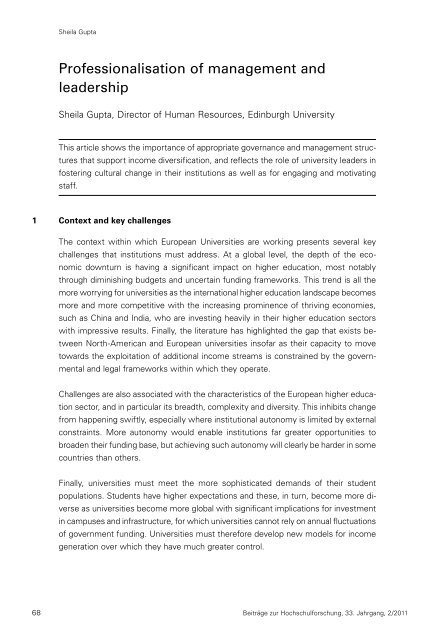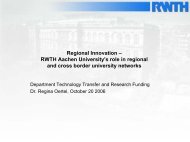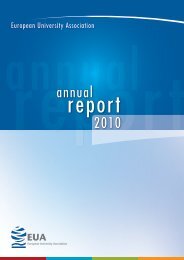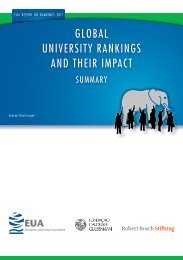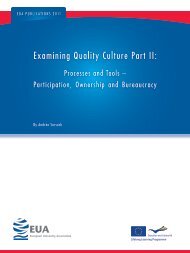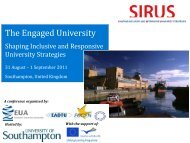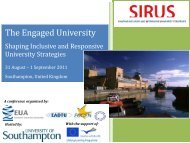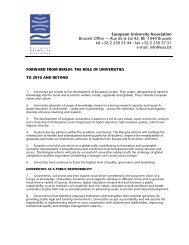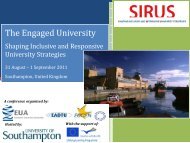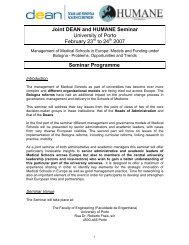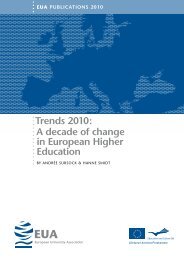Beiträge zur Hochschulforschung - European University Association
Beiträge zur Hochschulforschung - European University Association
Beiträge zur Hochschulforschung - European University Association
You also want an ePaper? Increase the reach of your titles
YUMPU automatically turns print PDFs into web optimized ePapers that Google loves.
68<br />
Sheila Gupta<br />
Professionalisation of management and<br />
leadership<br />
Sheila Gupta, Director of Human Resources, Edinburgh <strong>University</strong><br />
This article shows the importance of appropriate governance and management struc-<br />
tures that support income diversification, and reflects the role of university leaders in<br />
fostering cultural change in their institutions as well as for engaging and motivating<br />
staff.<br />
1 Context and key challenges<br />
The context within which <strong>European</strong> Universities are working presents several key<br />
challenges that institutions must address. At a global level, the depth of the eco-<br />
nomic downturn is having a significant impact on higher education, most notably<br />
through diminishing budgets and uncertain funding frameworks. This trend is all the<br />
more worrying for universities as the international higher education landscape becomes<br />
more and more competitive with the increasing prominence of thriving economies,<br />
such as China and India, who are investing heavily in their higher education sectors<br />
with impressive results. Finally, the literature has highlighted the gap that exists be-<br />
tween North-American and <strong>European</strong> universities insofar as their capacity to move<br />
towards the exploitation of additional income streams is constrained by the govern-<br />
mental and legal frameworks within which they operate.<br />
Challenges are also associated with the characteristics of the <strong>European</strong> higher educa-<br />
tion sector, and in particular its breadth, complexity and diversity. This inhibits change<br />
from happening swiftly, especially where institutional autonomy is limited by external<br />
constraints. More autonomy would enable institutions far greater opportunities to<br />
broaden their funding base, but achieving such autonomy will clearly be harder in some<br />
countries than others.<br />
Finally, universities must meet the more sophisticated demands of their student<br />
populations. Students have higher expectations and these, in turn, become more di-<br />
verse as universities become more global with significant implications for investment<br />
in campuses and infrastructure, for which universities cannot rely on annual fluctuations<br />
of government funding. Universities must therefore develop new models for income<br />
generation over which they have much greater control.<br />
<strong>Beiträge</strong> <strong>zur</strong> <strong>Hochschulforschung</strong>, 33. Jahrgang, 2/2011


